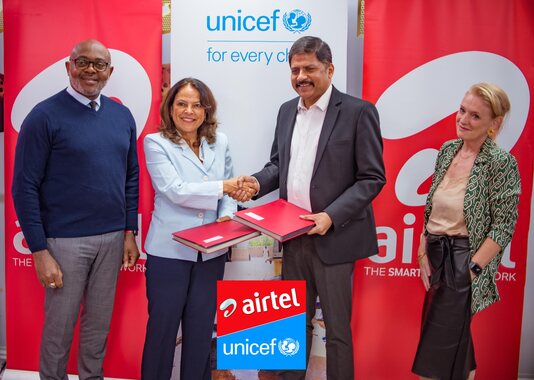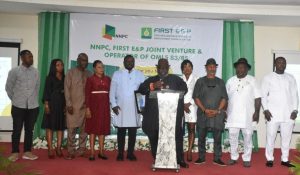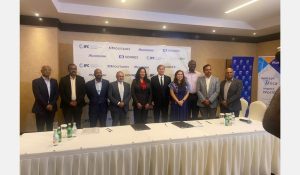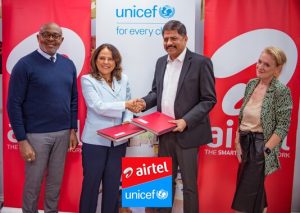
The United Nations Children’s Fund (UNICEF), in collaboration with Airtel Africa and the Federal Ministry of Education, has achieved a significant milestone in its digital learning initiative, positively impacting 600,000 students across 1,260 schools in Nigeria.
Airtel Africa CEO, Sunil Taldar, made this announcement during a visit to St. Agnes Primary School in Lagos on January 11, 2025. He underscored the critical role of digital education in securing Africa’s future, particularly given that 40% of the continent’s population is under 16 years old.
“Education is fundamental for Africa’s development. Through our partnership with UNICEF, we are ensuring standardized digital learning via the Nigeria Learning Passport, equipping students and teachers with connectivity and digital devices,” Taldar stated.
UNICEF Nigeria’s Chief Field Officer, Celine Lafoucriere, highlighted the program’s sustainability, emphasizing ongoing technical support to maintain access to digital learning tools. She noted that Lagos State had already embraced digital education, leveraging technology to enhance teaching and learning.
“This initiative not only provides digital tools but also ensures sustainable learning outcomes. By integrating internet connectivity into primary schools, we are enabling students to access quality educational resources while empowering teachers to deliver more effective lessons,” she said.
However, Lafoucriere stressed the importance of maintaining and upgrading digital devices to ensure uninterrupted learning. “Technology requires repairs and replacements at the right time. Addressing these sustainability challenges is key to keeping students and teachers engaged in a participatory learning process,” she explained.
Since the inception of the partnership, 1,260 schools have been connected to the internet, with 1.8 million students now registered on the Nigeria Learning Passport. Lafoucriere reaffirmed that reliable connectivity is crucial to minimizing disruptions in education and maintaining standardized learning quality.
She also emphasized UNICEF’s broader mission of working with governments to improve access to essential services such as water, sanitation, healthcare, and nutrition. “Education is a key pillar of development. Without it, access to basic services alone cannot guarantee a sustainable livelihood,” she said. She further reiterated UNICEF’s commitment to ensuring inclusive and equitable education, especially for vulnerable children and girls.
Lagos State Commissioner for Basic and Secondary Education, Mr. Jamiu Tolani Alli-Balogun, echoed the need for a technology-driven education system in today’s competitive world. “We live in a digital age, and Nigeria cannot afford to be left behind,” he stated.
He emphasized that Lagos already has a digital education framework, and this partnership with UNICEF and Airtel Africa serves to reinforce it. He also stressed that maintaining and replacing digital tools is essential for long-term success.
“This initiative fosters engagement between students and teachers, leading to a more participatory and effective learning process. It’s a collaboration that ensures the core objective of teaching and learning is achieved,” Alli-Balogun concluded.
As UNICEF, Airtel Africa, and the Nigerian government continue to bridge the digital divide, this initiative sets the stage for a more inclusive and technology-driven education system. With sustainable implementation and continuous support, millions of Nigerian students will have the opportunity to learn, grow, and compete in the global digital economy.






